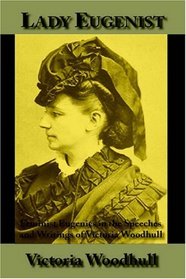Search -
Lady Eugenist: Feminist Eugenics in the Speeches and Writings of Victoria Woodhull
Lady Eugenist Feminist Eugenics in the Speeches and Writings of Victoria Woodhull
Author:
During the last decades of her life, Victoria Woodhull claimed to be the first of either sex to promote eugenics throughout the United States and Great Britain. Even more surprising, she claimed to have been doing so in the early 1870s, three decades before the cause was taken up in earnest by Francis Galton, the eminent scientist that eugenists... more »
Author:
During the last decades of her life, Victoria Woodhull claimed to be the first of either sex to promote eugenics throughout the United States and Great Britain. Even more surprising, she claimed to have been doing so in the early 1870s, three decades before the cause was taken up in earnest by Francis Galton, the eminent scientist that eugenists... more »
ISBN-13: 9781587420405
ISBN-10: 1587420406
Publication Date: 10/31/2005
Pages: 332
Rating: ?
ISBN-10: 1587420406
Publication Date: 10/31/2005
Pages: 332
Rating: ?
0 stars, based on 0 rating
Genres:
- History >> Americas >> United States >> 19th Century >> General
- Science & Math >> History & Philosophy >> General




